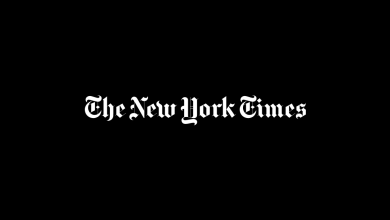Families of Boeing crash victims say the U.S. failed to consult them.

More than a dozen families of people killed in two Boeing 737 Max crashes are accusing the Justice Department of illegally leaving them in the dark when it reached a settlement with the company this year.
In a court filing on Thursday, 15 families accused the department of denying them an opportunity to weigh in on a criminal investigation into Boeing under a 2004 law meant to protect victims of crime and their representatives. They are asking a federal judge to force the department to turn over documents related to that investigation and to revoke the company’s protection from further criminal prosecution on the matter.
“What happened here in the waning days of the previous administration was a complete short circuit of the congressionally mandated process for the victims to be conferred with and have an opportunity to influence the outcome,” said Paul Cassell, a former federal judge who is representing the families.
The 15 families that brought the motion were joined by dozens more who signed on in support of it, representing a significant share of the 346 people killed in two Max crashes, in Indonesia in 2018 and in Ethiopia in 2019. The episodes led to a global ban of the plane for nearly two years, a debacle that cost Boeing billions of dollars and prompted investigations around the world.
Under the Justice Department’s settlement, which was announced in the final weeks of the Trump administration, Boeing agreed to pay $2.5 billion, most of it to the airlines that suffered financial losses because of the ban. Another $500 million went to a fund for the families or representatives of the victims and about $250 million was to paid as a criminal penalty to the federal government.
Neither the Justice Department nor Boeing immediately responded to requests for comment.
Even at the time the deal was announced, many criticized it as inadequate. Representative Peter DeFazio, a Democrat from Oregon and the chairman of the House Transportation Committee, said it was a “slap on the wrist and is an insult to the 346 victims who died as a result of corporate greed.”
News of the Jan. 7 agreement surprised many of the relatives of those who died, including Naoise Connolly Ryan, whose husband, Mick, died in the crash in Ethiopia in 2019, leaving behind Ms. Ryan, a daughter, who is now 6, and a son, who is now 3. Ms. Connolly said she and many others learned of the settlement from the news.
“We had absolutely no idea. It’s one of those moments in time that is burned in my memory,” she said. “It’s blood money. So I refuse to accept it. This did not reflect in any way, a sense of justice, criminal justice, and what should have been accountability at the highest levels inside Boeing.”
The families said that the Justice Department not only left them in the dark about the settlement, but also misled them by falsely telling them that there was no criminal investigation into Boeing. Under the 2004 Crime Victims’ Rights Act, the government is required to allow victims of crime or their representatives to confer on criminal cases and to act in “fairness and with respect for the victim’s dignity and privacy.”
“It was really designed to change the way the federal criminal justice system worked,” said Mr. Cassell, who is a law professor at the University of Utah.
The federal government has faced widespread criticism for its handling of the Max crisis. The Federal Aviation Administration has acknowledged failings in how it oversaw the plane’s development and certification. And some lawmakers have criticized the Justice Department for not being aggressive enough in pursuing cases against the company and its executives. In October, a federal grand jury indicted a former top Boeing pilot, but no other high-level executives have been charged with wrongdoing.




